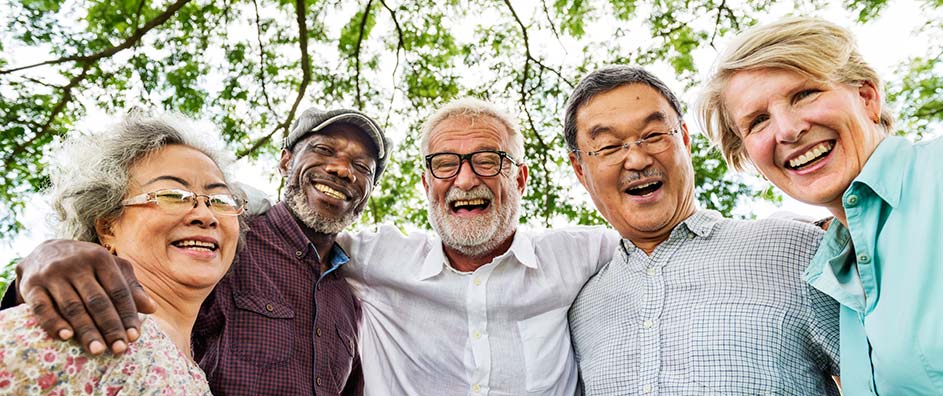In contemporary society, the significance of venerating and safeguarding the wisdom of our elderly population cannot be overstated. Baha’i teachings illuminate this responsibility, emphasizing the invaluable contributions that aged individuals make to the community through their knowledge, experience, and cultural heritage. These teachings not only present a moral imperative but also offer a practical framework for nurturing and protecting the elderly as a cherished treasure of human existence.
Understanding the intrinsic value of our elderly begins with recognizing the myriad of roles they fulfill within families and societies. They serve as custodians of history, often acting as the bridge between generations. Their narratives encompass ancestral wisdom, cultural rituals, and ethical constructs that define societal norms. The Baha’i perspective cherishes these contributions, positing that the insights of the elderly can lead to profound communal enlightenment.
One cannot discuss the protection of our wise seniors without addressing the concept of respect. The Baha’i teachings advocate a profound reverence for all individuals, particularly those who have traversed the path of life and gathered knowledge along the way. Respect manifests in several ways—through listening to their stories, engaging with their insights, and integrating their wisdom into decision-making processes. This engagement not only honors their experiences but also fosters an inclusive atmosphere where they feel valued and appreciated.
Furthermore, it is crucial to create environments that allow elderly individuals to thrive. Communities should be structured to accommodate their physical and emotional needs. Physical accessibility, social engagement opportunities, and health services must be prioritized. By instituting programs aimed at empowering elderly voices, such as community forums or intergenerational dialogue sessions, society can foster a culture of respect and inclusion.
Education plays a pivotal role in accomplishing these objectives. Promoting intergenerational learning can enhance understanding and appreciation between younger and older generations. Baha’i principles advocate for educational initiatives that encourage the youth to learn from their elders. Workshops, mentorship assignments, and collaborative projects can facilitate this cross-generational exchange, reinforcing the notion that wisdom is a continuum, not a finite resource.
Moreover, advocacy against ageism is an essential aspect of protecting our elderly. Ageism, which diminishes the perceived value of older individuals, erodes the collective wisdom upon which societies depend. Baha’i teachings challenge these misconceptions, urging individuals to recognize the dignity inherent in every age. Campaigns that seek to dismantle stereotypes surrounding aging can empower both elderly individuals and the public to reject age-related prejudices, thereby fostering an appreciation of the contributions that seniors make to societal advancement.
In affirming the spiritual dimension of aging, one must also consider the Baha’i commitment to service. Engaging the elderly in acts of service nurtures a sense of purpose and belonging. Opportunities for volunteering or participating in community service not only enrich their lives but also provide the larger community with access to the wealth of knowledge and experience that the elderly possess. It can empower them to take active part in shaping a more just and equitable society.
As the elderly confront various challenges, such as health decline and social isolation, compassionate caregiving takes center stage. The Baha’i teachings advocate for kindness and empathy in our interactions with seniors. Programs that train caregivers to understand and respond to the unique needs of elderly individuals can significantly enhance their quality of life. Additionally, spiritual and emotional support, such as companionship initiatives, can combat the loneliness that often accompanies aging. By fostering connections, communities reinforce the social fabric that holds together diverse age groups.
Another paramount aspect is the role of families in the care and protection of their elderly members. Within the Baha’i framework, families are embodiments of unity and love. Encouraging family members to engage actively in the lives of their elderly relatives creates a nurturing environment that strengthens familial bonds and reassures seniors of their value. This familial engagement can take various forms, from regularly scheduled visits to shared activities that promote joy and interaction.
Moreover, the Baha’i teachings underscore the necessity of legislation aimed at safeguarding elderly rights. Advocating for policies that protect them from exploitation and abuse is essential. Governments and organizations must work together to ensure that the needs of the elderly are met, particularly in terms of healthcare, housing, and economic security. Laws designed to protect their well-being not only reflect societal values but also embody the teachings that regard every human life as sacred.
Ultimately, embracing and implementing Baha’i teachings about protecting the elderly leads to a more compassionate and enlightened society. These teachings urge us to see the elderly as treasures brimming with wisdom, whose contributions can lead to the betterment of humanity. Understanding their value, advocating on their behalf, and incorporating their knowledge into the fabric of society is not merely beneficial; it is a moral imperative that elevates the collective consciousness.
In conclusion, the protection of our wise and elderly not only honors their legacy but also fortifies the foundation of our communities. By fostering respect, creating supportive environments, promoting intergenerational learning, advocating against ageism, and ensuring compassionate care, we align ourselves with the profound teachings that celebrate humanity in all its stages. Protecting our elderly is not just a duty; it is a treasure that enriches us all.
